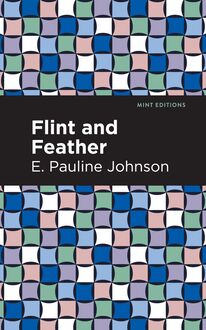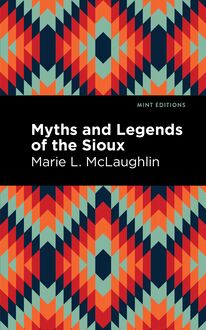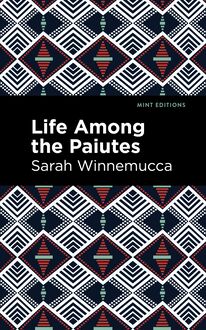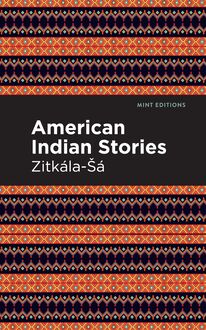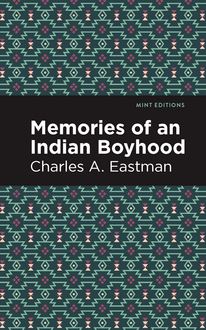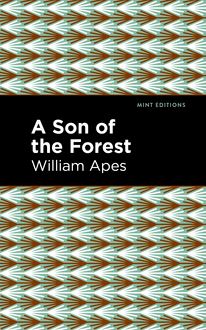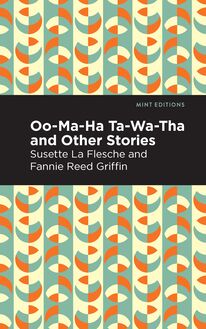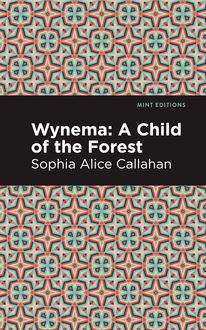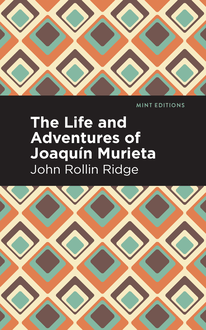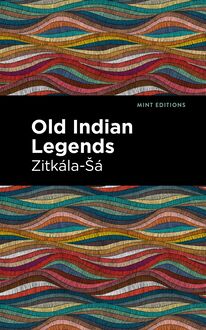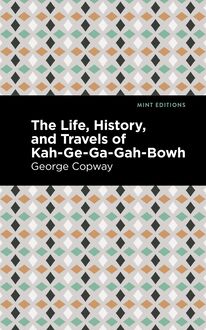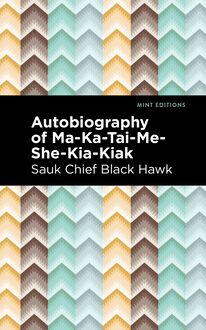-
 Univers
Univers
-
 Ebooks
Ebooks
-
 Livres audio
Livres audio
-
 Presse
Presse
-
 Podcasts
Podcasts
-
 BD
BD
-
 Documents
Documents
-
- Cours
- Révisions
- Ressources pédagogiques
- Sciences de l’éducation
- Manuels scolaires
- Langues
- Travaux de classe
- Annales de BEP
- Etudes supérieures
- Maternelle et primaire
- Fiches de lecture
- Orientation scolaire
- Méthodologie
- Corrigés de devoir
- Annales d’examens et concours
- Annales du bac
- Annales du brevet
- Rapports de stage
La lecture à portée de main
Vous pourrez modifier la taille du texte de cet ouvrage
Découvre YouScribe en t'inscrivant gratuitement
Je m'inscrisDécouvre YouScribe en t'inscrivant gratuitement
Je m'inscrisEn savoir plus
Vous pourrez modifier la taille du texte de cet ouvrage
En savoir plus

Description
The Life, History and Travels of Kah-ge-ga-gah-Bowh (1847) is a memoir by George Copway. Written while he was living with his wife and daughter in New York City, The Life, History and Travels of Kah-ge-ga-gah-Bowh was an immediate bestseller that helped establish Copway as a leading Native American author of the nineteenth century. Recognized as the first book published by a Canadian First Nations writer, Copway’s memoir is an invaluable resource for understanding the history of contact between settlers and indigenous peoples, some of whom, like Copway’s family, assimilated and served as missionaries, translators, and ambassadors. “I loved the woods, and the chase. I had the nature for it, and gloried in nothing else. The mind for letters was in me, but was asleep, till the dawn of Christianity arose, and awoke the slumbers of the soul into energy and action.” Raised in a moment of immense cultural change for his people, George Copway was educated to serve as a missionary for the Methodist church. Among the Ojibwe of Ontario and Minnesota, the man whose birth name was Kah-ge-ga-gah-Bowh, meaning He Who Stands Forever, spreads the Christian faith he has given his life to. Before this, however, he lived a simple life in touch with the natural world, fearful of spirits and careful to listen to the lessons of his elders. Interspersed throughout the story of his life are observations and passages on his family and the history of their ancestors, making The Life, History and Travels of Kah-ge-ga-gah-Bowh an invaluable record of their traditions and daily existence. Written in a poetic, meditative prose, Copway’s memoir remains essential reading nearly two centuries after it appeared in print. With a beautifully designed cover and professionally typeset manuscript, this edition of George Copway’s The Life, History and Travels of Kah-ge-ga-gah-Bowh is a classic work of Native American literature reimagined for modern readers.
Sujets
Informations
| Publié par | Mint Editions |
| Date de parution | 23 avril 2021 |
| Nombre de lectures | 0 |
| EAN13 | 9781513288444 |
| Langue | English |
Informations légales : prix de location à la page 0,0400€. Cette information est donnée uniquement à titre indicatif conformément à la législation en vigueur.
Extrait
The Life, History, and Travels of Kah-Ge-Ga-Gah-Bowh
George Copway
The Life, History, and Travels of Kah-Ge-Ga-Gah-Bowh was first published in 1847.
This edition published by Mint Editions 2021.
ISBN 9781513283425 | E-ISBN 9781513288444
Published by Mint Editions®
minteditionbooks.com
Publishing Director: Jennifer Newens
Design & Production: Rachel Lopez Metzger
Project Manager: Micaela Clark
Typesetting: Westchester Publishing Services
TO
T HE C LERGY AND L AITY OF THE AMERICAN AND BRITISH DOMINIONS, THIS BRIEF H ISTORY OF A C HILD OF THE F OREST , AND OF H IS N ATION , IS MOST RESPECTFULLY AND AFFECTIONATELY I NSCRIBED
BY
THE AUTHOR.
C ONTENTS A W ORD TO THE R EADER P REFACE I II III IV V VI VII VIII IX X XI XII XIII XIV XV XVI XVII
A W ORD TO THE R EADER
It would be presumptuous in one, who has but recently been brought out of a wild and savage state; and who has since received but three years’ schooling, to undertake, without any assistance, to publish to the world a work of any kind. It is but a few years since I began to speak the English language. An unexpected opportunity occurred of submitting my manuscript to a friend, who has kindly corrected all serious grammatical errors, leaving the unimportant ones wholly untouched, that my own style may be exhibited as truly as possible. The public, the printers, and myself, are indebted to him for his kind aid, and he has my most sincere thanks. The Printers, also, will accept my hearty thanks for their kind indulgence in affording me every facility in their power, in bringing out the work in so short a time, and for ‘getting it up’ with so much neatness. The language (except in a few short sentences), the plan, and the arrangement are all my own; and I am wholly responsible for all the statements, and the remaining defects. My work is now accomplished; and I am too well aware of the many faults which are still to be found therein. Little could I imagine, that I should have to contend with so many obstacles. All along, have I felt my great deficiency; and my inadequacy for such an undertaking. I would fain hope, however, that the kind Reader will throw the mantle of charity over errors of every kind. I am a stranger in a strange land! And often, when the sun is sinking in the western sky, I think of my former home; my heart yearns for the loved of other days, and tears flow like the summer rain. How the heart of the wanderer and pilgrim, after long years of absence, beats, and his eyes fill, as he catches a glance at the hills of his nativity, and reflects upon the time when he pressed the lips of a Mother, or Sister, now cold in death. Should I live, this painful pleasure will yet be mine. Blessed be the Lord, who hath helped me hitherto. ”
K AH - G E - G A - G AH - B OWH ,
ALIAS
G EORGE C OPWAY .
A LBANY, J ANUARY, 1847.
P REFACE
In presenting my life to the public, I do so with the greatest diffidence, and at the earnest solicitation of numerous friends. I am an Indian, and am well aware of the difficulties I have to encounter to win the favorable notice of the white man. Yet one great object prompts me to persevere, and that is, that I may, in connection with my life, present the present state and prospects of my poor countrymen—feeling that the friends of humanity may still labor and direct their benevolence to those who were once the lords of the land on which the white man lives—and assist in rescuing them from an untimely and unchristian grave.
I have noticed some of our prominent chiefs now living; the missionaries laboring amongst my people; the extent of the missionary field; and an appeal to all who feel interested in the welfare of the Indian race.
If ever I see the day when my people shall become happy and prosperous, I shall then feel great and lasting pleasure, which will more than repay me for the pain, both of body and mind, which I have endured for the last twelve years. My motto is—“ My poor People. ”
In all my crooked paths, I have endeavored to mean well. I thank my friends for their kind gifts and wishes. Yet still as much, and more, remains to be accomplished.
Pray for us—that religion and science may lead us on to intelligence and virtue; that we may imitate the good white man, who, like the eagle, builds its nest on the top of some high rock— science; that we may educate our children, and turn their minds to God. Help us, O help us to live—and teach us to die a christian’s death, that our spirits may mingle with the blessed above.
K AH - G E - G A - G AH - B OWH
I
The Christian will no doubt feel for my poor people, when he hears the story of one brought from that unfortunate race called the Indians. The lover of humanity will be glad to see that that once powerful race can be made to enjoy the blessings of life.
What was once impossible—or rather thought to be—is made possible through my experience. I have made many close observations of men, and things around me; but, I regret to say, that I do not think I have made as good use of my opportunities as I might have done. It will be seen that I know but little—yet O how precious that little!— I would rather loose my right hand than be deprived of it.
I loved the woods, and the chase. I had the nature for it, and gloried in nothing else. The mind for letters was in me, but was asleep, till the dawn of Christianity arose, and awoke the slumbers of the soul into energy and action.
You will see that I served the imaginary gods of my poor blind father. I was out early and late in quest of the favors of the Mon-e-doos (spirits), who, it was said, were numerous—who filled the air! At early dawn I watched the rising of the palace of the Great Spirit— the sun— who, it was said, made the world!
Early as I can recollect, I was taught that it was the gift of the many spirits to be a good hunter and warrior; and much of my time I devoted in search of their favors. On the mountain top, or along the valley, or the water brook, I searched for some kind intimation from the spirits who made their residence in the noise of the water falls.
I dreaded to hear the voice of the angry spirit in the gathering clouds. I looked with anxiety to catch a glimpse of the wings of the Great Spirit, who shrouded himself in rolling white and dark clouds—who, with his wings, fanned the earth, and laid low the tall pines and hemlock in his course—who rode in whirlwinds and tornadoes, and plucked the trees from their woven roots—who chased other gods from his course—who drove the Bad Spirit from the surface of the earth, down to the dark caverns of the deep. Yet he was a kind spirit. My father taught me to call that spirit Ke-sha-mon-e-doo— Benevolent spirit— for his ancestors taught him no other name to give to that spirit who made the earth, with all its variety and smiling beauty. His benevolence I saw in the running of the streams, for the animals to quench their thirst and the fishes to live; the fruit of the earth teemed wherever I looked. Every thing I saw smilingly said Ke-sha-mon-e-doo nin-ge-oo-she-ig— the Benevolent spirit made me.
Where is he? My father pointed to the sun. What is his will concerning me, and the rest of the Indian race? This was a question that I found no one could answer, until a beam from heaven shone on my pathway, which was very dark, when first I saw that there was a true heaven—not in the far-setting sun, where the Indian anticipated a rest, a home for his spirit—but in the bosom of the Highest.
I view my life like the mariner on the wide ocean, without a compass, in the dark night, as he watches the heavens for the north star, which his eye having discovered, he makes his way amidst surging seas, and tossed by angry billows into the very jaws of death, till he arrives safely anchored at port. I have been tossed with hope and fear in this life; no star-light shone on my way, until the men of God pointed me to a Star in the East, as it arose with all its splendor and glory. It was the Star of Bethlehem. I could now say in the language of the poet—
“Once on the raging seas I rode,
The storm was loud, the night was dark;
The ocean yawned, and rudely blowed
The wind that tossed my foundered bark.”
Yes, I hope to sing some day in the realms of bliss—
“It was my guide, my light, my all!
It bade my dark foreboding cease;
And through the storms and danger’s thrawl,
It led me to the port of peace.”
I have not the happiness of being able to refer to written records in narrating the history of my forefathers; but I can reveal to the world what has long been laid up in my memory; so that when “I go the way of all the earth,” the crooked and singular paths which I have made in the world, may not only be a warning to others, but may inspire them with a trust in God. And not only a warning and a trust, but also that the world d may learn that there once lived such a man as Kah-ge-ga-gah-bowh, when they read his griefs and his joys.
My parents were of the Ojebwa nation, who lived on the lake back of Cobourg, on the shores of Lake Ontario, Canada West. The lake called Rice Lake, where there was a great quantity of wild rice, and much game of different kinds, before the whites cleared away the woods, where the deer and the bear then resorted.
My father and mother were taught the religion of their nation. My father became a medicine man in the early part of his life, and always had by him the implements of war, which generally distinguish our head men. He was as good a hunter as any in the tribe. Very few brought more furs than he did in the spring. Every spring they returned from their hunting grounds. The Ojebwas each claimed, and claim to this day, hunting grounds, rivers, lakes, and whole districts of country. No one hunted on each other’s ground. My father had the northern fork of the river Trent, above Bellmont lake.
My great-grandfather was the first who ventured to settle at Rice Lake, after the Ojebwa nati
-
 Univers
Univers
-
 Ebooks
Ebooks
-
 Livres audio
Livres audio
-
 Presse
Presse
-
 Podcasts
Podcasts
-
 BD
BD
-
 Documents
Documents
-
Jeunesse
-
Littérature
-
Ressources professionnelles
-
Santé et bien-être
-
Savoirs
-
Education
-
Loisirs et hobbies
-
Art, musique et cinéma
-
Actualité et débat de société
-
Jeunesse
-
Littérature
-
Ressources professionnelles
-
Santé et bien-être
-
Savoirs
-
Education
-
Loisirs et hobbies
-
Art, musique et cinéma
-
Actualité et débat de société
-
Actualités
-
Lifestyle
-
Presse jeunesse
-
Presse professionnelle
-
Pratique
-
Presse sportive
-
Presse internationale
-
Culture & Médias
-
Action et Aventures
-
Science-fiction et Fantasy
-
Société
-
Jeunesse
-
Littérature
-
Ressources professionnelles
-
Santé et bien-être
-
Savoirs
-
Education
-
Loisirs et hobbies
-
Art, musique et cinéma
-
Actualité et débat de société
- Cours
- Révisions
- Ressources pédagogiques
- Sciences de l’éducation
- Manuels scolaires
- Langues
- Travaux de classe
- Annales de BEP
- Etudes supérieures
- Maternelle et primaire
- Fiches de lecture
- Orientation scolaire
- Méthodologie
- Corrigés de devoir
- Annales d’examens et concours
- Annales du bac
- Annales du brevet
- Rapports de stage
